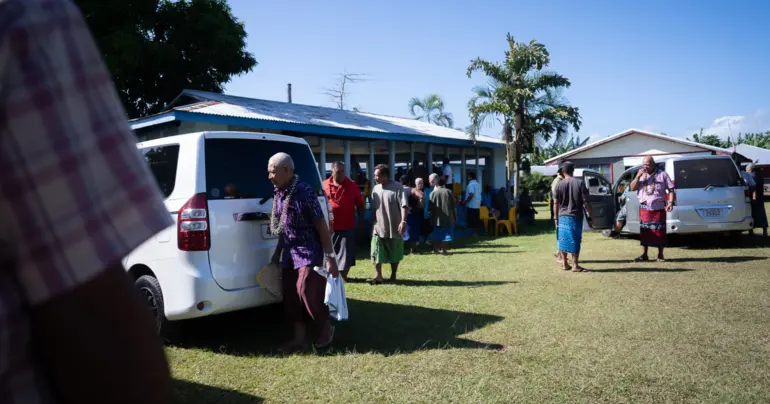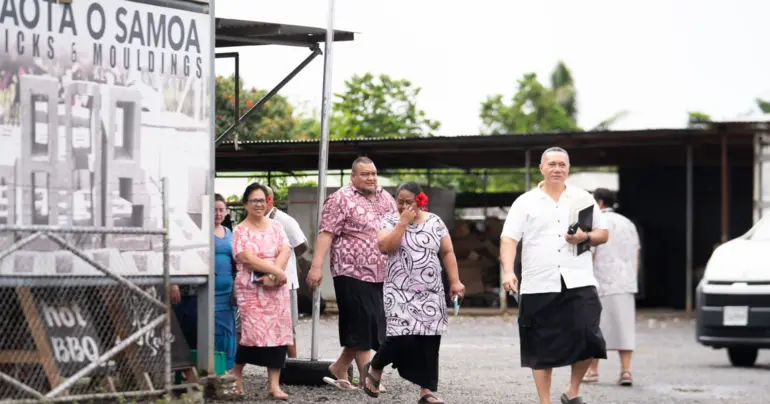Picking up the L.T.C. law pieces 12 months on
One year ago today the XVI Parliament passed a suite of Land and Titles Court (L.T.C.) Bills that amended Samoa’s Constitution and created a parallel judicial system outside the remit of the Supreme Court.
The passage of the legislation – voted 41–4 by a Human Rights Protection Party (H.R.P.P.) dominated Parliament – marked a dark day in the country’s history as the then administration ignored strong opposition from judges, lawyers, eminent jurists, the UN Human Rights Council and the general public.
The Lotofaga M.P. Fiame Naomi Mata'afa, the Gagaifomauga No. 3 M.P. La'auli Leuatea Schmidt and Independent Members Olo Fiti Va'ai and Leatinu'u Wayne So'oialo voted against the bills.
Among the key concerns was the independence of the judiciary and the principle of the separation of powers following the enactment of the Constitutional Amendment Bill 2020, the Land and Titles Bill 2020 and the Judicature Bill 2020.
But the previous administration went ahead nevertheless and passed the bills last December with the Head of State signing the Acts into law in January this year, overhauling and restructuring the Judiciary.
The implications of that decision by the former governing party to bulldoze through the draconian legislation were far-reaching, unbeknown to Samoa’s oldest political party, as it spelt doom for the party and its members.
Twelve months on, the four Members who voted against the three L.T.C. bills in the last parliament are now Cabinet Ministers in a new Government, with one Samoa’s first female Prime Minister in Fiame, while the H.R.P.P. languishes in opposition after suffering heavy defeat at the 2021 General Election in April.
No doubt, the L.T.C. Bills controversy played a pivotal role in the defeat of the former prime minister, Tuilaepa Dr. Sa'ilele Malielegaoi’s party and his loss of government.
The fact that the former government left the widely condemned Judiciary-focused legislative reforms until the very end of its five-year term also showed its disdain for greater citizen participation in its decision-making processes, especially proposed constitutional amendments that had broader implications for human rights and the rule of law, and needed to be subject to a comprehensive consultative process.
In retrospect there are lessons for political leaders in this sordid Samoan affair: not to insult the intelligence of the voters, who in our form of democracy have the last call on your tenure in public office.
So 12 months on how has the L.T.C. Acts add value to citizens’ lives in terms of their access to justice and being able to comprehensively address matai title and customary land grievances that a plaintiff could have?
The jury is still out on how the Acts have transformed the dispensation of justice through the L.T.C. 11 months after the Head of State signed them into law early this year.
Neither has it been smooth sailing for the proponents of the L.T.C. Acts with the L.T.C. Commission – also known as the Komisi o Faamasinoga o Fanua ma Suafa – unable to confirm the appointment of outgoing Electoral Commissioner, Faimalomatumua Mathew Lemisio as the new L.T.C. deputy president.
The Attorney-General, Su’a Hellene Wallwork had provided advice to the Minister of Justice and Courts Administration, Matamua Vasati Pulufana to not legally effect the appointment as the current law as it stands is defective and needs complementary legislation passed in order to be fully realised.
“The powers to appoint [the deputy president] lies with the Komisi [o Faamasinoga o Fanua ma Suafa] but the difficulty we have right now is the legal and financial requirements are not yet finalised,” said Su’a.
“Although the powers are laid out in the Constitution the way in which the power is to be exercised needs to be set out in an Act [of parliament] that has not yet been passed.”
According to the Attorney-General, the current law is defective as it fails to spell out qualifications of appointee, an appointment process and the pathways to suspend and terminate.
It is embarrassing when you realise the highest decision-making body in the land, Samoa’s Legislative Assembly, passed flawed legislation last December which now needs to go back to the drawing board.
However, this should not come as a surprise to anyone: it was a one-party State back then and the XVI Parliament was merely a rubber stamp for the executive government.
So here we are, yet again, at the drawing board after a tumultuous 12 months following the passing of these controversial laws.
And where do we go from here in our bid as a nation to develop and formulate legislation that truly represents the desires and aspirations of the people?
Ultimately the power belongs to the people. Major changes to the Constitution in the future promulgated by a government-of-the-day, should be put back to the people, through a bipartisan consultative process.
We doubt the L.T.C. Bills in their current form would have made it far in the legislative process, if they were subject to sufficient parliamentary scrutiny.
Tags











